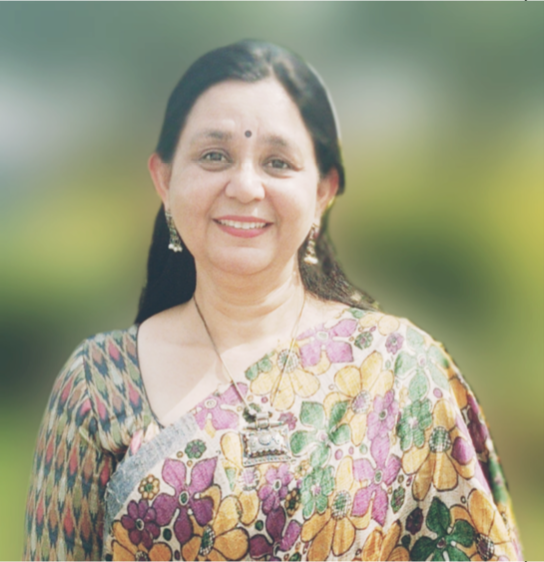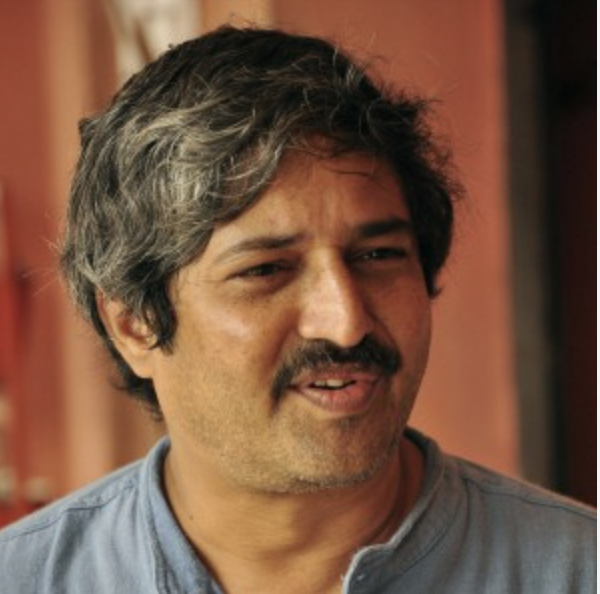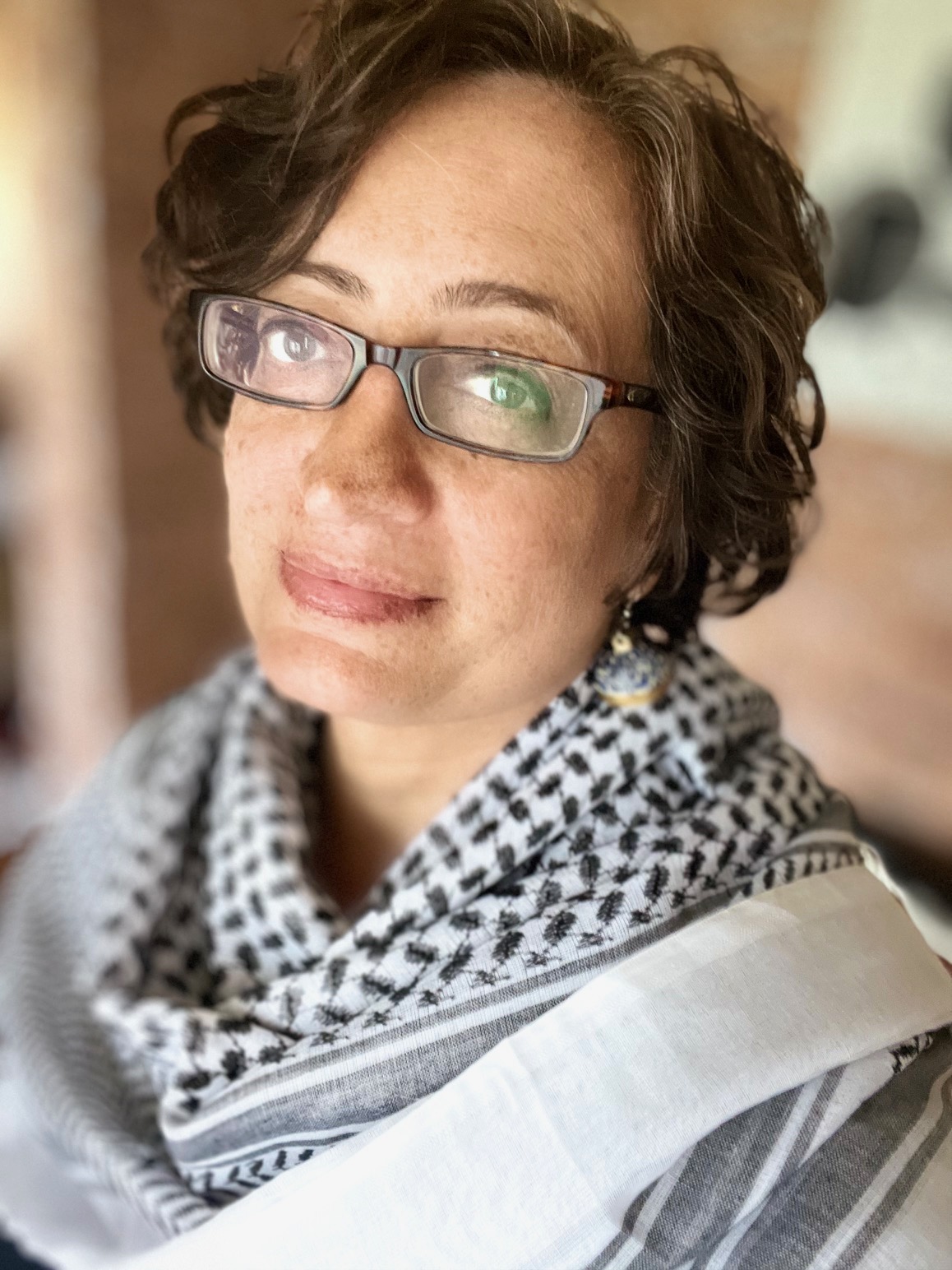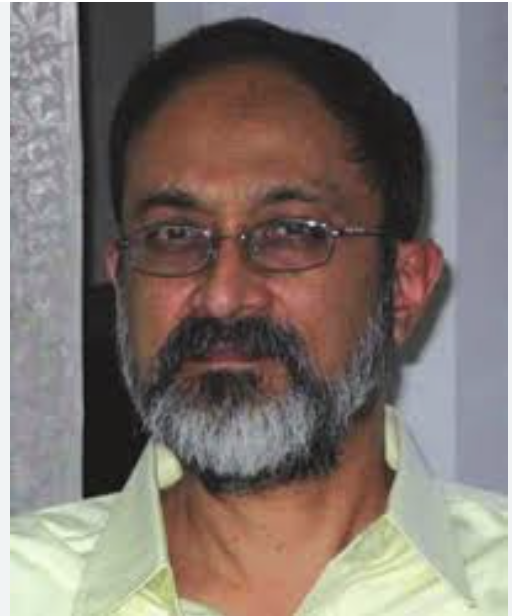MTA(I) – NRC jointly organized with the
State Council of Educational Research and Training (SCERT), Haryana &
State Institute of Advanced Studies in Teacher Education (SIASTE), Haryana
Conference dates: 31st January to 2nd February 2025
Final Conference Programme
The MTA(I) regional conferences aim to provide a forum for mathematics teachers, educators, mathematicians and individuals interested in mathematics education to come together and deliberate on various aspects of mathematics education. In the past MTA conferences, discussions have pertained to classroom practices, policy, curriculum, role of technology, and pedagogic aspects of mathematics teaching at the school and college levels.
Mathematics teachers and educators from Delhi NCR and the northern states who are interested in deliberating upon the challenges of mathematics education and finding possible solutions are invited to participate in the conference. The following themes have been identified to steer the discussions.
CONFERENCE THEMES
Theme 1: Innovations in Mathematics Teaching and Learning: Experiences and Narratives from the Classroom
Theme Description
This conference theme will focus on innovative practices and approaches that enhance mathematics learning at the school and college levels. The aim is to encourage the sharing of authentic voices and narratives by teachers from all levels of school and undergraduate education who have attempted to engage their learners in mathematics learning through innovative practices. Some of the innovative practices may include inquiry-based learning (IBL), project-based Learning, adopting new classroom practices, designing activities and developing resources to alleviate challenges faced by students in understanding different mathematics concepts. Innovative methods of assessments to assess mathematical thinking and reasoning are also welcome. Some of the questions which may be addressed in this theme are:
- What are the challenges faced by students in understanding specific mathematical concepts?
- What can be the rationale behind the design of a specific innovation – be it in the form of a lesson plan, an activity, a classroom teaching practice, a teaching-learning resource or an assessment method?
- What insights are gained from implementing the innovation(s) in the classroom? Examples of students’ work may be presented to highlight this aspect.
- To what extent do innovative practices contribute towards developing an understanding of mathematics among students?
Theme 2: Mathematics Education in a Digital Age
Theme Description
This theme will focus on the role of technology in mathematics education, including digital software and tools specifically designed for mathematics learning, such as dynamic geometry software (DGS), computer algebra systems (CAS), spreadsheets and hand-held devices. Opportunities provided by e-learning platforms, AI tutors, and virtual manipulatives designed to enhance understanding of mathematics concepts will also form an important part of the discourse on this conference theme. The following questions may be addressed in this theme.
- What new approaches to the teaching and learning of mathematics are enabled by digital technology?
- How do students engage with mathematical concepts while using digital tools? How is their learning impacted through the use of such tools?
- What are the affordances and challenges associated with the use of new and emerging digital technologies? How can teachers negotiate the constraints and create opportunities for integrating digital technologies in the mathematics classroom?
- Is it possible to enhance the discovery of fundamental concepts in mathematics at the college level through the use of digital technology?
Theme 3: Bridging Gaps in Mathematics Learning
Theme Description
In this theme, the various gaps that are created or exist at different stages of mathematics learning will be explored. The idea is to highlight these gaps and explore ideas that may be useful in ameliorating the situation.
One such gap is the transition between high school and university-level mathematics. The emphasis will be on better preparing students for advanced mathematical concepts in college and problem-solving skills. Addressing curriculum gaps, exploring opportunities for school–university collaborations, early exposure to advanced topics through workshops, etc., may be included in the discussions.
Another gap experienced is at the high school level when many students drop mathematics after class X. However, as undergraduates, postgraduates, or professionals, they are required to have a better understanding and need to be able to use various facets of mathematics or mathematical thinking. For example, many disciplines and workplaces require proficiency in handling and interpreting data. How can such gaps be bridged?
At the school level, many students face the complicated problem of not having the competency level related to mathematics that they should have at their stage. This is also sometimes due to the policies associated with promotion. However, these learning gaps come to the fore when board examinations have to be faced. How can teachers and education policymakers address this situation?
Several years of mathematics learning were, in a way, lost due to purely online teaching during COVID-19. This is especially the case for learners at crucial stages of learning. Now, these students are facing the consequences of being unprepared for the current stages of their mathematics learning. In particular, this gap has affected students of all levels, from schools to those currently enrolled for a doctoral degree. Is there any way to help such students regain their lost learning and confidence?
Social and psychological barriers in mathematical learning are very challenging for students, especially teenagers. How can teachers be equipped to help their learners overcome these barriers?
- Can school-university collaborations bridge any of these gaps (as mentioned above)?
- Can popularizing mathematics through the use of kits, toys, games, storybooks, math clubs, newsletters, and journals help to address these gaps, especially at the school level?
- Can the curriculum design at various levels fill the gaps in mathematics learning? Could special textbooks or e-learning materials help students at the school level?
- How can teachers at different levels identify the learning gaps, and what can they do to help overcome these gaps?
Theme 4: Mathematics and Computational Thinking
Theme Description
Computational Thinking (CT) has been identified as one of the key abilities children acquire during their school years. While CT includes a broad skill set universally applicable across contexts and domains, it is also intimately connected with mathematical thinking (MT). Further, mathematics as a core school subject becomes a natural choice for integrating CT.
This conference theme will explore the relationship between CT and MT, identifying where they overlap and where they require different approaches. This posits the following questions.
- How can the integration of CT take place in the mathematics classroom?
- What kind of unplugged tasks should be designed to allow students to explore concepts, develop CT practices, and foster MT simultaneously?
- Can and should programming be integrated into mathematics learning?
- What is the role of computing tools in mediating the development of MT and CT in the mathematics classroom?
Theme 5: Teacher Professional Development in Mathematics
Theme Description
Teachers need to engage in continuous learning throughout their careers just as professionals in any other field. Much of mathematics teacher professional development in India focuses on the cascade training approach, which lasts a few days a year. However, such programmes are not adequate for addressing the needs of mathematics teachers. Further, the relevance of these programmes in enhancing the teaching of mathematics at different levels is often left unexplored.
This conference theme will focus on the design and implementation of teacher professional development that not only addresses teachers’ needs but also provides opportunities for continuous professional growth. Many professional development interventions have focused on developing reflective practices among teachers, encouraging action research by teachers, addressing math anxiety, providing opportunities for collaboration within and across schools, and creating communities for social interaction and discussion. However, there is a pressing need for professional development opportunities which empower the teacher by enhancing their pedagogical content knowledge, skills and teaching practices. The papers and presentations on this theme may address the following questions.
- What may be considered innovative mathematics teacher professional development? How can such models be developed, and to what extent are they likely to address teachers’ needs and enhance classroom teaching?
- How can teacher professional development support collaborative learning among teachers? What are the different models and resources for supporting such learning?
Can teacher professional development programmes envision mathematics teachers as researchers and reflective practitioners?
- How can classroom artefacts and examples be integrated into teacher professional development to support the development of teachers’ pedagogical content knowledge, skills, and practices for teaching mathematics?
- How can teacher professional development address issues such as math anxiety, connecting mathematics with students’ lived reality, and catering to learners with special needs?
KEYNOTE TALKS
Talk 1:
Professor Shobha Bagai
Director, Cluster Innovation Centre, University of Delhi.
Innovative Approaches to Mathematics Education: Project-Based Learning and Classroom Narratives
Abstract
 The evolving landscape of mathematics education calls for innovative, hands-on methodologies that actively engage learners. This keynote delves into project-based learning as a transformative approach to teaching mathematics, emphasizing real-world applications and critical problem-solving. Sharing classroom stories and reflective experiences highlights the impact of such strategies in fostering creativity, collaboration, and a deeper understanding of mathematical concepts, inspiring educators to revolutionize their teaching practices.
The evolving landscape of mathematics education calls for innovative, hands-on methodologies that actively engage learners. This keynote delves into project-based learning as a transformative approach to teaching mathematics, emphasizing real-world applications and critical problem-solving. Sharing classroom stories and reflective experiences highlights the impact of such strategies in fostering creativity, collaboration, and a deeper understanding of mathematical concepts, inspiring educators to revolutionize their teaching practices.
Talk 2:
Professor R Ramanujam
Azim Premji University, IMSc Chennai (Retd.).
Posing problems for the mathematics classroom
Abstract
 While problem-posing and problem-solving have been considered central in mathematics education, we rarely discuss problem-posing as an aspect of pedagogy.
While problem-posing and problem-solving have been considered central in mathematics education, we rarely discuss problem-posing as an aspect of pedagogy.
This talk will discuss some experiences with structuring problem-solving at different stages.
Talk 3:
Professor Fozia S. Qazi
Islamic University of Science and Technology (Retd.), Kashmir.
Celebrating Mathematics
Abstract

This talk will focus on my experiences of organizing math festivals for school children as a means to alleviate math phobia and to attract students towards the study of mathematics. I will illustrate various enjoyable activities that can easily be organized with minimal resources.
Talk 4:
Dr. Shailesh Shirali
Director, Teacher Education Centre, Valley School KFI, Bangalore.
Visual and Combinatorial Thinking in Teaching and Learning Mathematics
Abstract
 Visual thinking and combinatorial thinking are important pathways for the teaching-learning of mathematics, and teachers need to think about how best to incorporate them into their work. This talk will illustrate how we might do this through various examples. The task presents a challenge to our imagination and visualization skills, as well as our artistic skills! But if we incorporate them into our teaching, the benefit to students will be lasting, e.g., in developing mathematical intuition and problem-solving ability.
Visual thinking and combinatorial thinking are important pathways for the teaching-learning of mathematics, and teachers need to think about how best to incorporate them into their work. This talk will illustrate how we might do this through various examples. The task presents a challenge to our imagination and visualization skills, as well as our artistic skills! But if we incorporate them into our teaching, the benefit to students will be lasting, e.g., in developing mathematical intuition and problem-solving ability.
Panel Discussions
Panel 1: Teacher professional development in mathematics: Design and implementation
Panel 2: Bridging gaps in mathematics learning at different stages in school and undergraduate education
Registration Details
Registration for the conference will begin on 23 December 2024 @ 5 pm. Here are details of the registration fees:
- With twin-sharing type accommodation for 3 nights
- Rs 2500 (For Non-members of MTA)
- Rs 1500 (For MTA Life Members)
- Without accommodation
- Rs 1200 (For Non-members of MTA)
- Rs 800 (For MTA Life Members)
The registration fees include participation in all sessions, conference materials, conference dinner, conference meals, and tea. We have limited sharing-type accommodation, so preference will be given to presenting participants from the Northern region and MTA members.
Limited travel support may be offered to selected participants. Any queries regarding registration and travel support should be sent to mta.india18@gmail.com
Important Dates
- Deadline to submit an abstract for paper/poster presentation:
December 15, 2024, December 22, 2024- Deadline for applying to participate:
December 15, 202,4 December 22, 2024
- Notification of acceptance of abstract:
December 31, 2024, January 5, 2025
- Deadline for registering for the conference:
January 5, 2025, January 12, 2025
- Conference dates: 31st January, 1st & 2nd February, 2025
Apply Now
Guidelines for Abstract Submission
Programme Committee
- Amber Habib (Shiv Nadar University, Greater Noida, UP)
- Geetha Venkataraman (Dr. B. R. Ambedkar University Delhi)
- Hemant Gandhi (State Institute of Advanced Studies in Teacher Education, Haryana)
- Jasneet Kaur (University of Auckland, New Zealand)
- Jonaki Ghosh, Co-chair (Lady Shri Ram College for Women, University of Delhi)
- Jyoti Sethi (Directorate of Education, Delhi)
- Ruchi Kumar (Tata Institute of Social Sciences, Mumbai)
- Sangeeta Gulati (Sanskriti School, Delhi)
- Shweta Naik (Homi Bhabha Center for Science Education, Mumbai)
- Sunil Bajaj, Co-chair (SCERT, Haryana)
Local Organising Committee
- Dr. Rishi Goel, SIASTE Jhajjar
- Sh. Sunil Bajaj, Chair SCERT Haryana
- Dr. Suman Sharma, SCERT Haryana
- Dr. Madhup, SCERT Haryana
- Dr. Manoj Kaushik, SCERT Haryana
- Dr. R. K. Ponia, SCERT Haryana
- Dr. Manoj Sharma, SCERT Haryana
- Dr. Sunita Chaudhary, SCERT Haryana
- Ms. Rupam Jha, SCERT Haryana
- Dr. Shivani Kaushik, SCERT Haryana
- Dr. Ruchika, SCERT Haryana
- Dr Seema Raheja, SCERT Haryana
- Dr. Sheenu Dahiya, SCERT Haryana
- Sh. Rakesh Kumar Sheoran, SIASTE Gurugram
- Dr Anita, SIASTE Gurugram
- Sh. Anil Kumar Yadav, DIET Gurugram
MTA(I) Membership
MTA(I) seeks to enhance mathematics standards nationwide by engaging students and teachers in various activities that foster an interest in the subject and nurture mathematical talent. We warmly invite mathematics teachers from Kerala, Tamil Nadu, Karnataka, Andhra Pradesh, and Telangana to join MTA(I) in this endeavour and to participate in our second regional conference.
Click here to apply to become a MTA(I) member.

 The evolving landscape of mathematics education calls for innovative, hands-on methodologies that actively engage learners. This keynote delves into project-based learning as a transformative approach to teaching mathematics, emphasizing real-world applications and critical problem-solving. Sharing classroom stories and reflective experiences highlights the impact of such strategies in fostering creativity, collaboration, and a deeper understanding of mathematical concepts, inspiring educators to revolutionize their teaching practices.
The evolving landscape of mathematics education calls for innovative, hands-on methodologies that actively engage learners. This keynote delves into project-based learning as a transformative approach to teaching mathematics, emphasizing real-world applications and critical problem-solving. Sharing classroom stories and reflective experiences highlights the impact of such strategies in fostering creativity, collaboration, and a deeper understanding of mathematical concepts, inspiring educators to revolutionize their teaching practices. While problem-posing and problem-solving have been considered central in mathematics education, we rarely discuss problem-posing as an aspect of pedagogy.
While problem-posing and problem-solving have been considered central in mathematics education, we rarely discuss problem-posing as an aspect of pedagogy.
 Visual thinking and combinatorial thinking are important pathways for the teaching-learning of mathematics, and teachers need to think about how best to incorporate them into their work. This talk will illustrate how we might do this through various examples. The task presents a challenge to our imagination and visualization skills, as well as our artistic skills! But if we incorporate them into our teaching, the benefit to students will be lasting, e.g., in developing mathematical intuition and problem-solving ability.
Visual thinking and combinatorial thinking are important pathways for the teaching-learning of mathematics, and teachers need to think about how best to incorporate them into their work. This talk will illustrate how we might do this through various examples. The task presents a challenge to our imagination and visualization skills, as well as our artistic skills! But if we incorporate them into our teaching, the benefit to students will be lasting, e.g., in developing mathematical intuition and problem-solving ability.